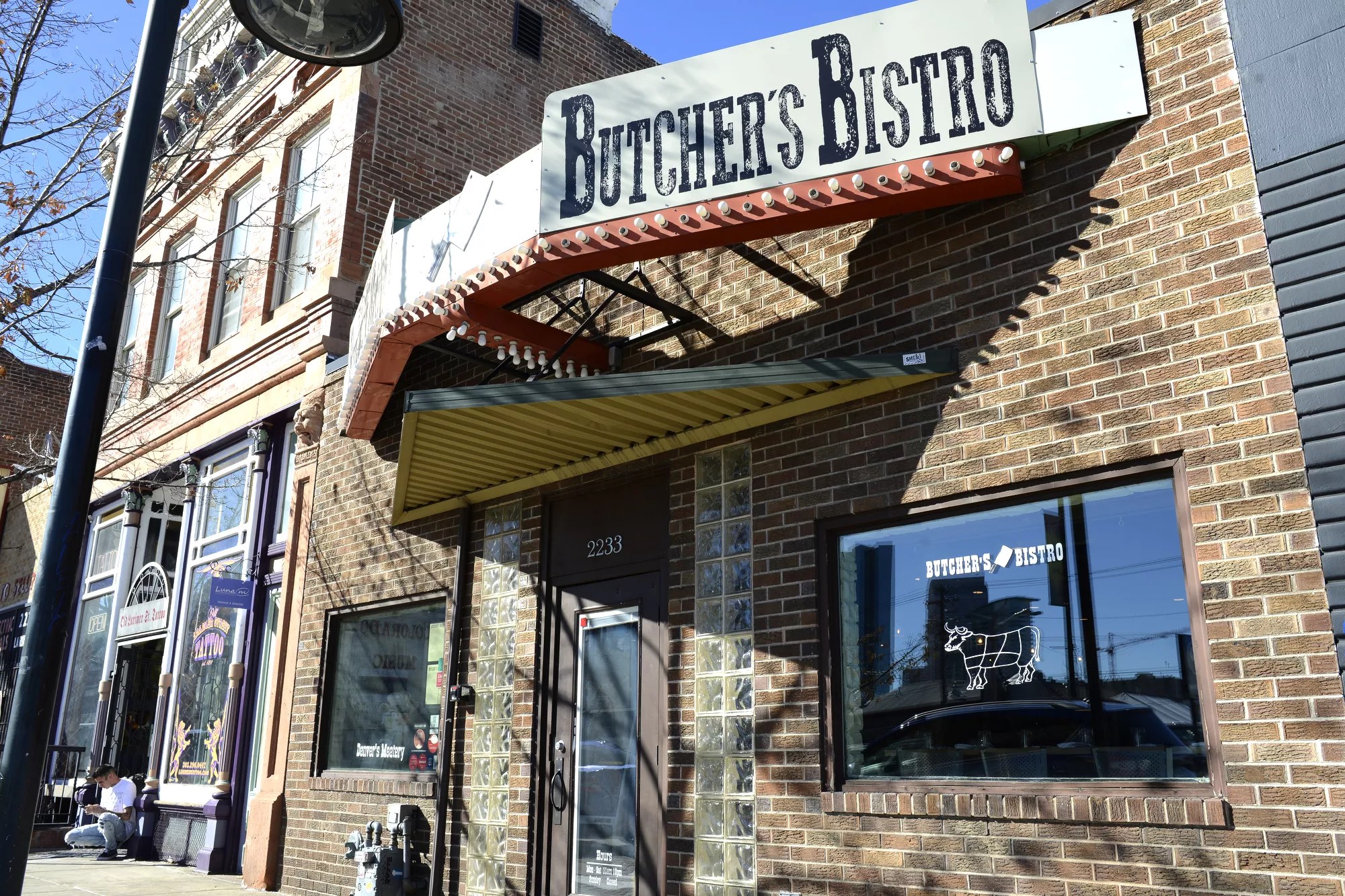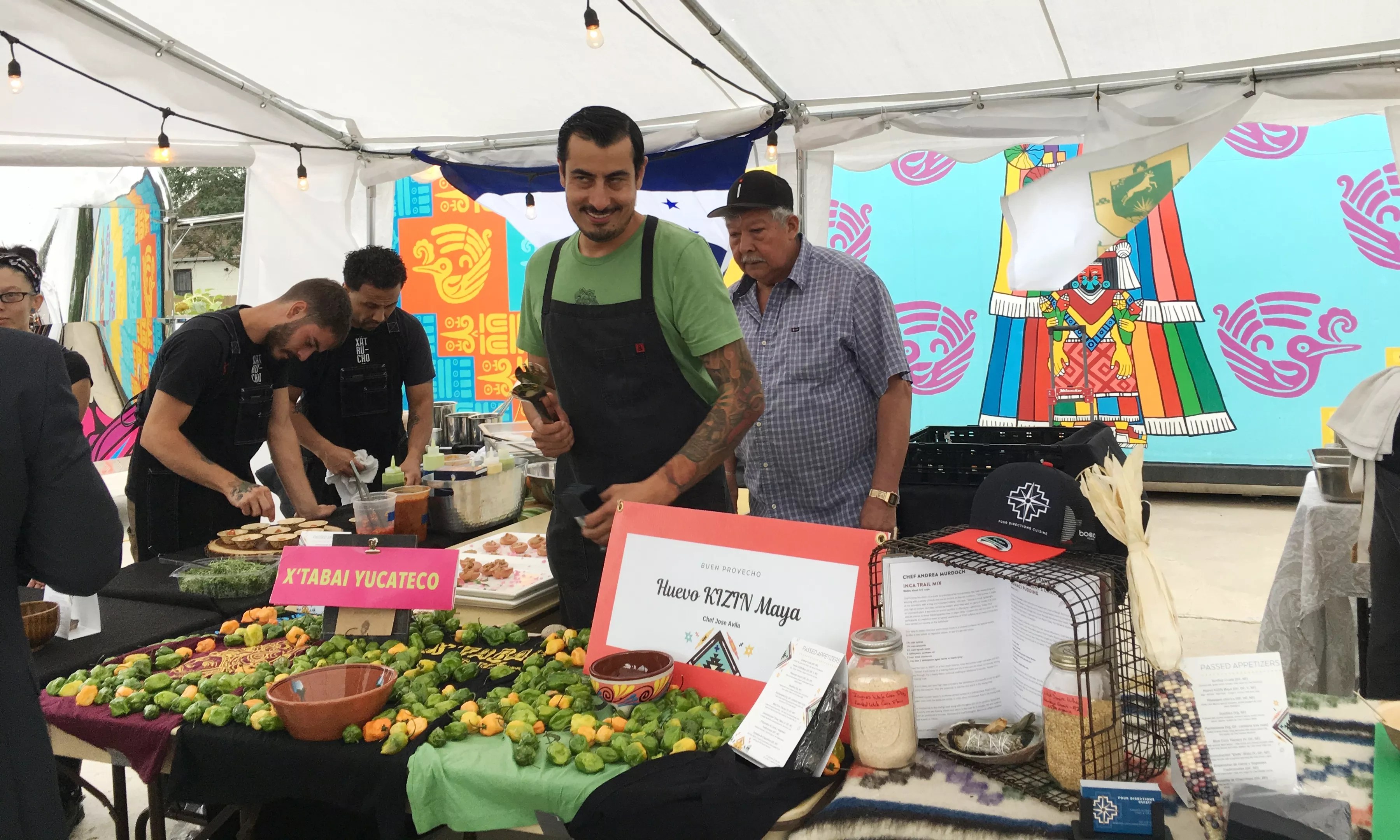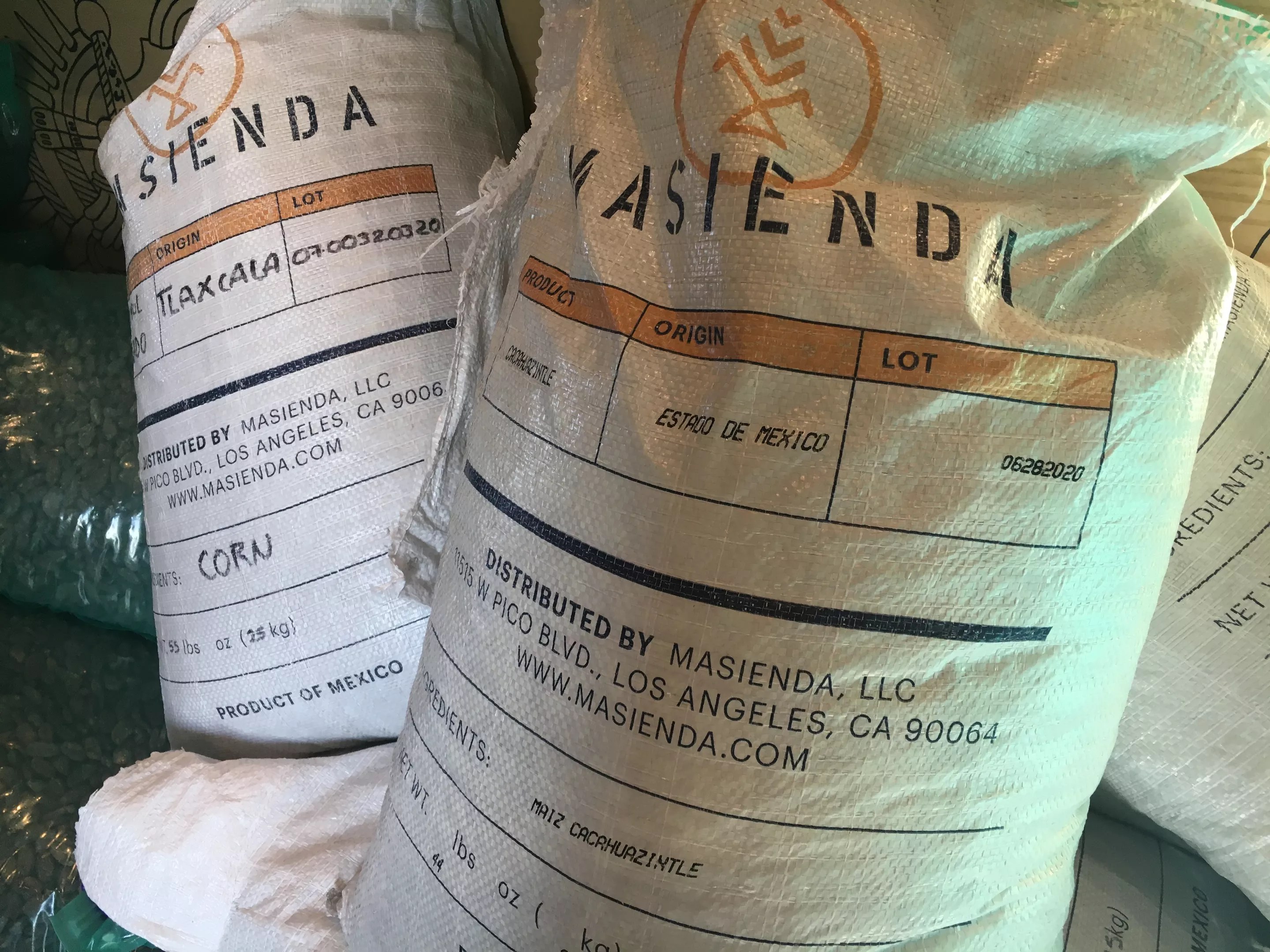
Scott Lentz

Audio By Carbonatix
Chef Jose Avila can’t be accused of putting all his huevos in one basket. In the interest of showcasing the vast variety of culinary styles from all over Mexico, Avila started out with Mexico City-style tacos as chef/partner at Machete Tequila + Tacos before departing to introduce Yucatecan specialties with his X’Tabai Yucateco food truck and barbacoa de borrego in the style of Hidalgo with his Sunday-only pop-up El Borrego Negro at 3800 Morrison Road.
El Borrego Negro was a first in Denver, offering barbacoa from a whole sheep cooked overnight in a brick-lined underground oven called an hoyo. Many of his dishes at X’Tabai are also tough to find in other Mexican restaurants around the city. And now Avila is bringing another first to Denver, this time with a full brick-and-mortar restaurant. The chef is currently in the process of taking over the former home of Butcher’s Bistro (which was chef Jeff Osaka’s Twelve before that), at 2233 Larimer Street, with a goal of opening La Diabla Pozoleria y Mezcaleria by mid-March.

Chef Jose Avila gives Re:Vision guests a taste of menu items from his food truck, X’Tabai Yucateco.
Mark Antonation
While other bars around town have explored mezcal, La Diabla will be Denver’s first eatery devoted to pozole – and Avila says he owes the idea in part to pho. “The first time I went to a pho place, it was packed with my people,” he recalls. “It was filled with Mexicans. I don’t think they were there for the rice noodles – I think it’s the broth, and the way you can load it up with lime and jalapeños and sauces. It really made me think of pozole.”
But Avila’s main inspiration comes from the pozolerias of Mexico City, where he grew up. “There’s no place in Denver that specializes in the caldos [soups] of Mexico,” the chef points out. “In Mexico City there’s a place called Los Tolucos that makes pozole from Guerrero…and they have a carnitas station at the entrance.”
And like Los Tolucos, La Diabla will serve several styles of pozole, “like the Mexican flag,” Avila explains. So there will be verde and blanco pozoles, plus red pozole that he says is more typical of northern Mexico (and which is more common in Denver restaurants). He’s also planning on serving tacos guisados, which generally offer several types of stewed fillings along with rice and a hard-boiled egg. The carnitas counter at the front of the restaurant (where Butcher’s Bistro had a deli case with fresh sausages and meat cuts) will let customers choose from their favorite parts of the pig for tacos to grab on the go. Another pork specialty will be chamorros, slow-cooked pork hock that you can slide off the bone with a tortilla.
Avila is already purchasing whole dried corn from Masienda, a company that specializes in importing heirloom grains and beans from Mexico, for his other project, so he’ll be nixtamalizing Masienda corn for his pozoles and grinding it for his tortillas. The nixtamalization process enhances the corn’s nutritional value and flavor, but very few restaurants do it themselves because it’s a time-consuming undertaking. Left whole, the corn (called hominy in English) is one of the main ingredients in pozole; ground, it becomes masa for making tortillas, tamales and other dishes.

Avila buys whole heirloom corn from Masienda for his pozole and tortillas.
Mark Antonation
The bar will highlight mezcal from Guerrero, too, as well as the more well-known Oaxacan varieties, but will otherwise keep things simple with just a light and dark Mexican lager on tap.
The chef says the kitchen is in good shape, but he’s adding more stoves to accommodate large stock pots and is renovating the bar and dining room with new paint and a mural that will depict the history of pozole and mezcal.
A few blocks away, a Chicago-based restaurant group is building a cantina-style bar and restaurant called Federales, which, judging by its website, looks to target RiNo’s nightlife scene, but not necessarily its Latino community. But Avila isn’t worried that La Diabla will be overshadowed; he knows that fans of good Mexican food will find him – after all, he was selling traditional tacos at Machete in Cherry Creek a decade ago. “Mexicans like good food, and once they find it, they’ll drive anywhere to get it,” he says, adding that customers have come all the way from Fort Collins and Longmont to eat his barbacoa at El Borrego Negro.
And surely they’ll come for the pozole, too.